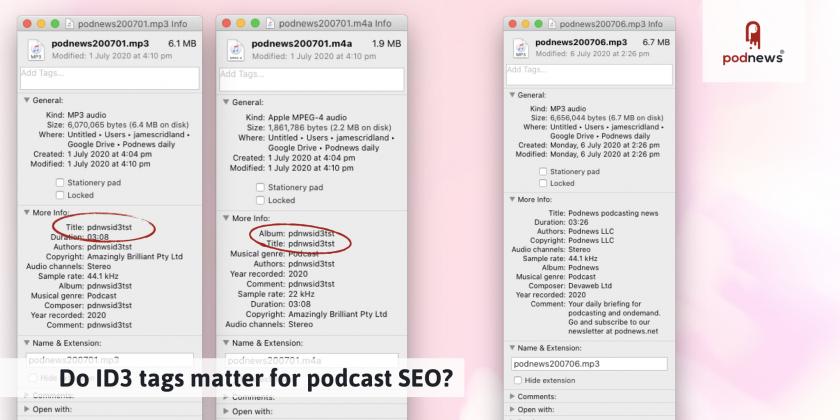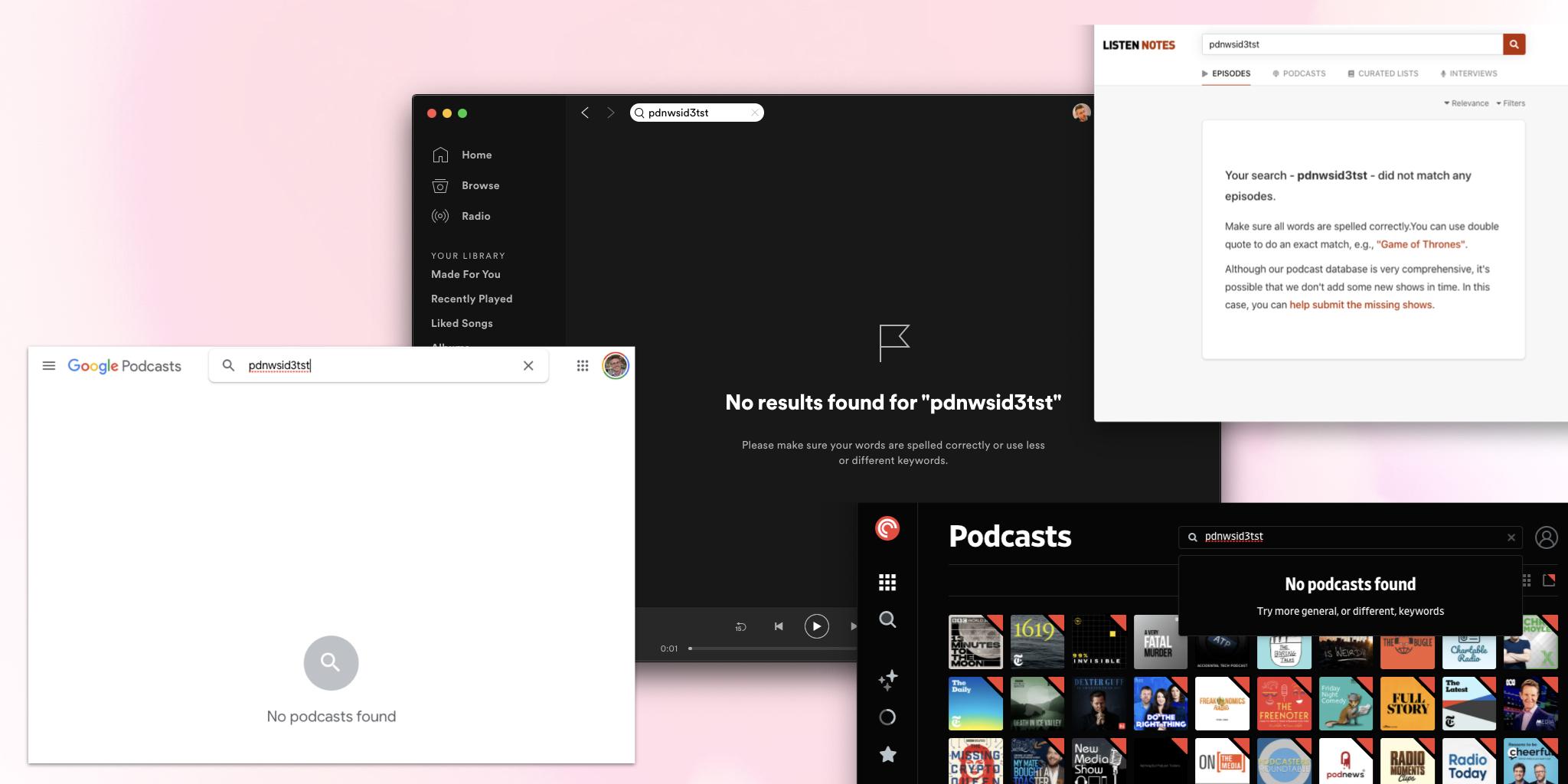
Do ID3 tags matter for podcasts? What about SEO?

This article is at least a year old
ID3 tags, normally added by your digital audio editor, can control the information you see when you play back audio in players like Winamp or VLC. They’re little hidden pieces of information held within your audio file.
ID3 tags might be used for titles, artists, and all kinds of things. However, for virtually every single podcast app, ID3 tags simply are not used (with the occasional exception of artwork).
Nobody uses them
In 2020, Podnews analysed 3,512 podcasts, and stored the audio metadata for them. This allowed us to do a little data work.
Only 1,340 (38%) had any specific ID3v2 tags in them at all.
Only 764 (21%) have a title tag (either ID3v1 or ID3v2).
So, they’re not being used by podcasters much.
The only time they’re used for podcasting is in old editions of iTunes, which shows the ID3 tags when playing a downloaded show; or if you’re such an advanced user you play back podcasts in VLC or something similar. Or you still have a Rio media player.
We think ID3 tags are a bit of a waste of time.
But, do ID3 tags make any difference to SEO?
Search Engine Optimisation is massively important, we’re told.
Some experts say yes. “Nobody sees your ID3 tags, except search engines, but don’t underestimate the power of the ID3 tag for podcast SEO,” says one YouTuber. A podcast host reckons ID3 tags are “a form of SEO that will help your audience find you and find out more about you”. A podcast consultant claims these ID3 tags are even used by Apple Podcasts and Spotify.
We’re not so sure.
So we thought we’d test it out.
The way of testing whether search engines are indexing something is to use a made-up word. If that word appears in the search engine, you know for certain that they’re indexing it. If it doesn’t: they aren’t.
On July 1 2020, we put special ID3 tags inside our normal podcast: where we’d replaced almost all our normal ID3 information with one word that doesn’t appear anywhere on Google. You’ll see it in the image at the top of this article.
We set the title, author, composer, comment, and many more tags to this one word: so if ID3 tags are used by any service as a method of discovering audio, we’d be able to find out.
We did not add this special word in any part of our RSS feed. It was only in our ID3 tag for this episode.
Podnews’s podcast is carried almost everywhere, and within a few minutes after publishing, Google had indexed the new episode as normal. Within an hour, almost every podcast app and website had the new show, complete with that special word in our ID3 tags.
By July 9 2020, that word doesn’t appear at all in Google, or in Bing. It appears once in Yandex, where it’s associated with a mobile scissor lift for servicing cars for some reason. Look:

And no, it didn’t appear in a search in Apple Podcasts, nor Google Podcasts, nor Spotify, nor Pocket Casts, nor Listen Notes - even though the episode was. Look:

In fact, when revisiting this page in 2024, that special word still wasn’t in search engine indexes.
Given the results of this test, we can be relatively certain that, no, ID3 tags are not used for SEO.
As Dave Jackson says, it’s worth still putting them into your files: because the 0.1% of people who still use their Rio mediaplayer might like to see it. Who knows, they might be useful in the future; and they should be done relatively automatically by your digital audio editor or podcast host. But right now, we’ve proof: ID3 tags are not used for SEO.
There, with the time we’ve saved you, why not take the time to support Podnews instead?

































































































